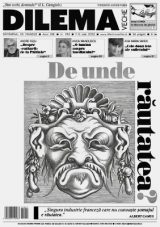Miklós Haraszti
is a writer, journalist, human rights advocate and university professor. He served the maximum of two terms as the OSCE Representative on Freedom of the Media from 2004 to 2010. Currently he is Adjunct Professor at the School of International and Public Affairs of Columbia Law School, New York. Haraszti studied philosophy and literature at Budapest University. In 1976 he co-founded the Hungarian Democratic Opposition Movement and in 1980 became editor of the samizdat periodical Beszélö. In 1989, Haraszti participated in the Roundtable negotiations on transition to free elections. He was a member of the Hungarian Parliament from 1990–1994, and then moved on to lecture on democratization and media politics at numerous universities. Haraszti’s books include A Worker in a Worker’s State and The Velvet Prison, both of which have been translated into several languages .
Articles
Notes on Hungary's media law package
(Updated following the agreement with the European Commission)
Hungary’s media law could lead to a depoliticisation of the media the likes of which exists in Russia and in other post-Soviet democracies, writes the former OSCE Representative on Freedom of the Media. The alterations to the law on the basis of the agreement with the European Commission will do little to this halt this tendency.
A shifting media landscape
An interview with Miklós Haraszti
In his time, Miklós Haraszti has been writer, journalist, human rights activist, politician and academic. Under the communists, he co-founded Hungary’s Democratic Opposition Movement and was editor of a samizdat magazine. After participating in the round table negotiations that led to the country’s first free elections, he became a member of parliament. Today, he is the OSCE Representative on Freedom of the Media. On the twentieth anniversary of the fall of the Berlin Wall, he speaks to Judith Vidal-Hall about the shifting media landscape in the post-communist countries of Europe.



